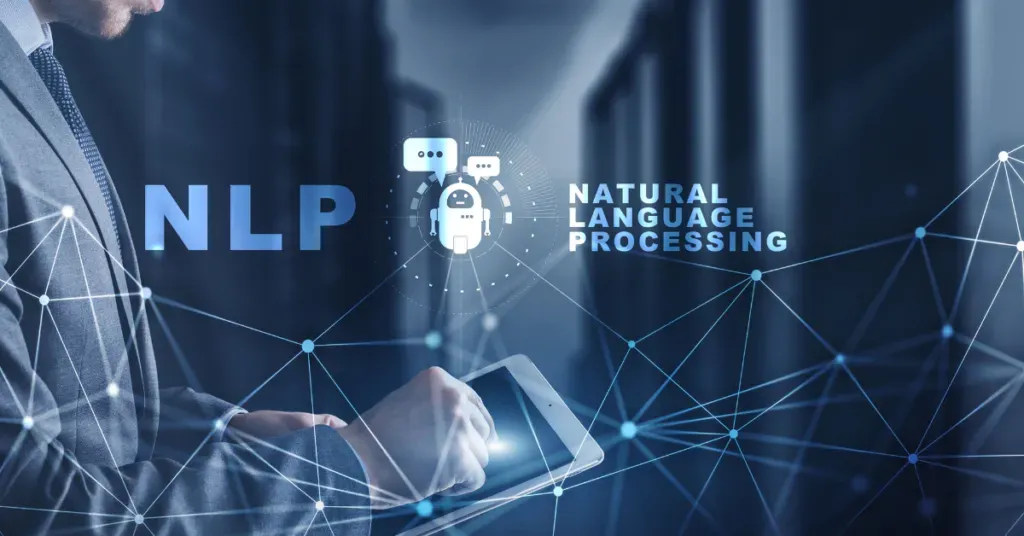Top 20 Natural Language Learning Projects for Beginners to Pros

Natural Language Processing (NLP) plays a pivotal role in modern technology. It is one of the cornerstones of a tech-driven world and, as such, is slated for explosive growth. In fact, the $18.9 billion growth of 2023 is projected to reach $68.1 billion by 2028. Consequently, there will be a proportionate surge in demand for NLP skills. This blog aims to provide a comprehensive list of natural language processing projects catering to both beginners and seasoned professionals.
Natural Language Processing Projects for Beginners
1. Sentiment Analysis
Sentiment analysis stands as a cornerstone among natural language processing projects, offering an engaging start for novices. This project involves analyzing text data to determine the nature of the sentiment expressed—positive, negative, or neutral. Furthermore, it is a fundamental skill in NLP, essential for understanding public opinion on social media or customer feedback in business.
In this kind of project, one learns to process and classify text data, utilizing algorithms that discern underlying sentiments. Additionally, this project is a great introduction to machine learning concepts within the natural language processing realm. Consequently, mastering sentiment analysis lays a solid foundation for more advanced NLP projects, enhancing skill sets in this rapidly evolving field.
2. Conversational Bots: Chatbots
Developing conversational bots, or chatbots, is a fascinating venture into NLP projects, especially for those just beginning their journey in natural language processing. Chatbots are programs mimicking human conversation, widely used in customer service, entertainment, and assistance. Furthermore, NLP project ideas like these not only sharpen programming and NLP skills but also provide valuable insights into human-computer interaction.
While working on this project, learners delve into topics like natural language understanding and machine learning algorithms. Consequently, creating a chatbot offers practical, hands-on experience, making it perfect for exploring NLP in a fun, interactive way. Therefore, for anyone interested in the intersection of technology and language, developing a chatbot is an enriching and rewarding project.
ALSO READ: What is the Best Salary for a Machine Learning Engineer in the Global Market?
3. Topic Identification
Topic identification paves the way for understanding natural language processing projects, presenting an interesting NLP challenge. This project focuses on categorizing and classifying text into predefined topics, a fundamental aspect of organizing and analyzing large data sets. Additionally, topic identification teaches one to use algorithms that can sift through text and identify key themes and subjects, a skill crucial in fields like content analysis and digital marketing.
Topic identification not only enhances technical know-how but also deepens the comprehension of how machines understand human language. Consequently, through this project, gain a deep understanding of language processing mechanics, enhancing NLP skills. Therefore, for NLP knowledge expansion, topic identification is challenging but extremely rewarding.
4. Automatic Text Summarization
Automatic text summarization exemplifies the practical use of NLP, condensing vast texts into brief, informative summaries. It involves creating algorithms to shorten texts coherently, preserving their essence and key points. This skill is vital in our information-rich world, demanding quick comprehension of extensive documents. In automatic text summarization in NLP projects, learners enhance the efficiency of information processing and NLP expertise. Thus, for NLP aspirants, it presents a challenging yet rewarding chance to delve into advanced concepts and applications.

5. Grammar Autocorrector
Building a grammar autocorrector is among the quintessential natural language processing projects that brilliantly combine learning with practical utility. This project is about developing a tool for detecting and correcting grammatical errors in texts. It is key in writing and editing apps. Plus, it helps explore language rules and their algorithmic application, boosting your NLP knowledge.
A project such as this offers experience in applying NLP to real-world issues. As a result, it enhances skills and aids users by elevating the quality and clarity of their writing.
ALSO READ: Top 10 Best Practices and Insights to Prepare You for Industry 4.0
6. Spam Classification
Spam classification offers an insightful peek into the practical aspects of natural language processing, standing as a crucial component among natural language processing projects. This task involves developing algorithms to identify and filter unwanted emails, a challenge in digital communication. Moreover, learners get to delve into machine learning and training models to distinguish spam and legitimate messages. Furthermore, it is an opportunity to understand text processing and feature extraction in NLP.
By engaging in spam classification, one enhances digital communication security and understands NLP’s real-world applications. For those interested in cybersecurity and NLP, spam classification is a practical, valuable project to hone skills and contribute to this field.
7. Text Processing and Classification
Text processing and classification is a fundamental skill that highlights the core of what makes natural language processing projects so essential in the tech world. This area involves developing systems that can understand, interpret, and categorize text data efficiently. Moreover, through this project, one delves into the intricacies of text analytics, learning how to process raw data and extract meaningful insights.
Classification tasks require a deep understanding of machine learning algorithms, enabling learners to categorize text into various predefined labels. Consequently, mastering skills in NLP is crucial for specialists, also providing a robust foundation for advanced projects. Text processing and classification offer a comprehensive, challenging starting point, paving a successful journey in this field.
ALSO READ: 10 Best AI Tools to Increase Your Productivity in the Workplace
Intermediate NLP Projects
1. Sentence Autocomplete
Sentence autocomplete systems represent a complexity step up, challenging but rewarding for natural language processing projects. Such projects predict next words or phrases in a sentence from initial inputs, which is a feature in messaging apps and word processors. Additionally, they demand an understanding of language patterns and user behavior—essential skills in NLP.
Developing such a system boosts technical expertise and improves digital communication efficiency and user-friendliness. Hence, for NLP boundary pushers, this project blends challenges with practical applications, affirming their role in advancing NLP projects.
2. Market Basket Analysis
Market basket analysis introduces an intriguing dimension to NLP project ideas, blending linguistics with consumer behavior, and thus stands as a must-have skill for anyone delving into intermediate-level natural language processing. This project involves analyzing large sets of transaction data to discover patterns and correlations between different products purchased together. Moreover, it is a vital skill in the retail and e-commerce sectors, where understanding customer buying habits is crucial.
Market basket analysis in NLP is a fusion of data mining methods and language skills, presenting a distinct challenge surpassing simple text analysis. This mastery boosts handling real-world data and gives deep customer insights. Thus, for NLP aspirants, it is a crucial project that links theory and practice, a key part of advanced NLP skills.
ALSO READ: Reinforcement Learning in Machine Learning: Top 10 Applications
3. Automatic Questions Tagging System
Developing an automatic question tagging system presents a challenging yet rewarding task in NLP project ideas. It is essential for those interested in advancing their natural language processing skills. This project involves creating a system to categorize questions by content, intent, and complexity. Furthermore, it enhances digital customer service platforms, educational forums, and online help desks.
Additionally, it demands a deep understanding of linguistic nuances and machine learning algorithms, combining language comprehension and technical skills. Consequently, accurate question tagging enables sophisticated NLP applications like chatbots and automated response systems. Therefore, for anyone deepening their NLP expertise, working on this system offers a challenging but valuable task, highlighting its importance as an intermediate NLP skill.
4. Resume Parsing System
Creating a resume parsing system is a practical, intermediate-level skill. This project involves extracting key details from resumes, like education and work experience, using NLP techniques. It is especially useful in recruitment, making the process of reviewing resumes more efficient.
This skill requires understanding complex texts and using machine learning for information extraction. Building a resume parser enhances technical skills and offers insight into automating processes with NLP. It is a vital project for those growing in the NLP field, combining real-world relevance with a significant learning opportunity.
ALSO READ: 5 Tools and Techniques to Help You Understand and Interpret AI Models
5. Disease Diagnosis
Venturing into disease diagnosis through natural language processing projects bridges the gap between technology and health care, marking it as an essential NLP skill. This project involves analyzing medical text, such as patient records or clinical notes, to identify and predict diseases. Moreover, it is a critical application in modern health care, aiding in early detection and better patient care management.
Mastering this skill demands expertise in natural language processing, medical terminologies, and data privacy. Engaging in disease diagnosis projects offers experience in sensitive health data handling and advanced medical technology. Therefore, for impactful work in NLP and health care, disease diagnosis through NLP is essential, blending technical challenges and societal benefits.
Advanced NLP Projects for Mastery

1. Language Recognition
Mastering language recognition is a pinnacle achievement among natural language processing projects, representing a sophisticated and advanced skill in the field. This project aims to develop systems that accurately identify and differentiate various languages from text input. It is a complex task requiring a deep understanding of each language’s unique linguistic features, vital in advanced natural language processing.
Proficiency in language recognition is key for global applications and caters to diverse users. Thus, tackling this challenge enhances NLP skills and broadens the perspective on language’s cultural and regional variations. Therefore, for NLP career advancement, focusing on language recognition in NLP projects is essential, leading to an advanced understanding and application of NLP in a globally connected world.
ALSO READ: Large Language Models: A Guide on its Benefits, Limitations, and Future
2. Image-Caption Generator
Creating an image-caption generator is a key accomplishment in NLP skills. Combining computer vision and NLP, this project involves developing a system to analyze images and generate captions. This requires knowledge of image-processing and language models—a complex, multidisciplinary task.
This skill is vital for assistive technology and digital media, where visual-textual synthesis is crucial. Thus, this project challenges technical skills and boosts creative NLP problem-solving.
3. Homework Helper
Creating a homework helper app showcases the practical use of advanced NLP skills. It is a testament to the versatility and depth needed in NLP projects. The app helps students understand and solve academic problems. It must comprehend and respond to diverse educational queries. The project requires complex NLP techniques: text parsing, keyword extraction, and semantic analysis.
This skill is vital for educational technologies catering to various learning styles and subjects. A challenging project that tests learners’ NLP knowledge and skills, this project requires building a homework helper app as a key step. It demonstrates applying NLP in real-world educational solutions.
4. Research Paper Title Generator
Generating research paper titles is a very innovative and advanced project within the scope of natural language processing projects, requiring a nuanced understanding of language generation models. In this project, the aim is to produce apt and compelling titles for scientific papers, a task that requires both creativity and technical precision. Furthermore, for this project, a GPT-2 model is trained on more than 2,000 article titles extracted from arXiv, an online open-access library of articles before peer reviews, showcasing the integration of machine learning and large data sets.
Moreover, this application extends beyond just title generation; it can be adapted for text-generating tasks like producing song lyrics or dialogues, demonstrating the versatility of NLP techniques. Additionally, this project provides an opportunity to delve into web scraping, as it necessitates extracting text from research papers to feed into the model for training. Consequently, mastering this skill is not just about understanding NLP algorithms but also about effectively sourcing and processing data.
5. Extracting Keyphrases F4om Scientific Content
In this task, the primary objective is to automatically find and extract significant words or terms from scientific texts, a skill pivotal in synthesizing and summarizing complex information.
Furthermore, there are numerous approaches to tackling this challenge, including rule-based, unsupervised, and supervised methods. Rule-based methods utilize a set of predefined criteria to select key phrases, emphasizing the importance of setting accurate and relevant rules for effective extraction. Conversely, unsupervised methods employ statistical techniques to identify the most crucial terms in the document, requiring a profound understanding of statistical analysis and its application in text data. Supervised methods involve training models on annotated data sets, which requires machine learning and algorithm design skills.
ALSO READ: How Can You Pursue a Career in Machine Learning: A Comprehensive Guide
Leveraging GitHub for NLP Projects
GitHub is a crucial resource for finding and contributing to advanced natural language processing projects. Therefore, leveraging GitHub is beneficial for all levels of NLP projects.
1. Analyzing Speech Emotions
Analyzing speech emotions on GitHub showcases the intricate blend of psychology and natural language processing projects, underscoring why GitHub is an invaluable resource for those engaged in advanced NLP endeavors. This project involves deciphering the emotional tone from spoken words, a complex task that combines linguistic analysis with psychological understanding. Moreover, GitHub serves as a crucial platform for accessing a wealth of open-source projects and code repositories related to this domain. Furthermore, it provides an opportunity for collaboration and learning from a global community of developers and researchers.
2. Detecting Paraphrases
The challenge of detecting paraphrases offers an intriguing problem for those immersed in natural language processing, highlighting the significance of GitHub as a crucial resource in this advanced domain. This task involves identifying different textual expressions that convey the same meaning, a sophisticated aspect of natural language processing projects.
3. Analyzing Similarity
This is a beginner-friendly endeavor in the realm of natural language processing projects, focusing on quantifying similarities between two documents utilizing the Cosine similarity method. This project’s goal is to highlight common topics of discussion by determining the closeness in content between the papers. Furthermore, Cosine similarity operates by converting the documents into vectors, thereby enabling the computation of similarity based on these vectors. Moreover, it calculates document similarities by taking the inner product space, which essentially measures the cosine angle between them, a critical concept in text analytics.
Additionally, document similarity refers to the degree to which documents share identical intent, a key aspect in various NLP projects. Many examples of document similarity in NLP projects notably utilize the spaCy module in Python, a powerful tool in natural language processing. Consequently, by engaging in this project, you not only grasp the fundamentals of text comparison but also gain practical experience in applying Python’s NLP capabilities.
ALSO READ: The Top 7 Innovative Machine Learning Courses: Rebuilding Transformation
For those seeking to elevate their skills, consider Emeritus’ online artificial intelligence courses and machine learning courses. Consequently, whether you’re a beginner or a seasoned professional, these NLP project ideas provide a pathway to mastery in this dynamic field. Therefore, embark on your NLP adventure today and discover the limitless potential of natural language processing!
Write to us at content@emeritus.org





